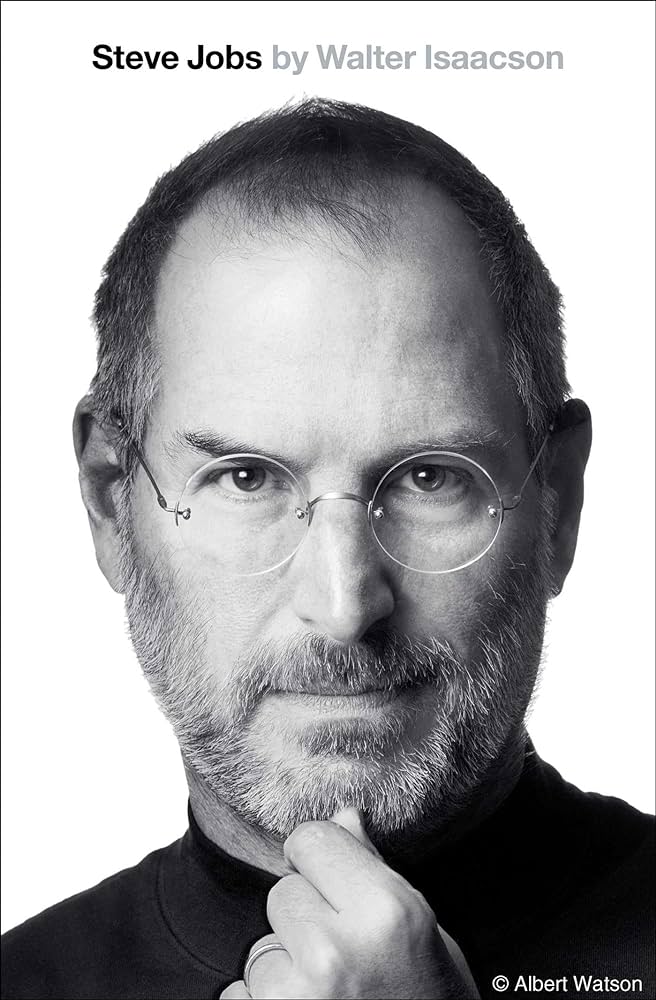Steve Jobs

I recently watched a tv series, which was so-so, but had an interesting idea. A young, ambitious staff at a pharmaceutical company made a deal with the god of death. He would have all worldly success imaginable to mankind; but in return, he had to pay dearly.

Some of Jobs' Accomplishments
In a similar way, I would not be utterly surprised if a similar deal was made by Steve Jobs.
I have just finished the biography of Steve Jobs, and here are some of his accomplishments over 30 years (anyone who has come across the hard cover would know how thick that is): -
1) Creating the first consumer computer;
2) Bringing a revolution to the music industry by allowing people to purchase music on iTunes. Before that, people could only bought CDs, or download musics illegally.
3) Built iPhone and iPad (and might have literally killed boredom).
4) He built Pixar, perfectly combining arts and technology.
5) He built Apple, the most valuable company in the world (which is Amazon and Google combined), starting from a two people meeting with Steve Wozniak in a garage.
It is certainly incorrect to say that he did that singlehandedly. However, none of that would happen without him. Indeed, his partner Steve Wozniak would like to give out his invention for free, which was the basis of the first consumer computer. History would be very different if that happened.
Complexities of Jobs
You cannot expect a genius who changed the course of history multiple times (or made a dent in the universe, as he put it) to be a normal person. It is a well known fact that Jobs was very unkind to his employees and was kind of an asshole, even to his close friends (he refused to give options of Apple to one of his best friends who started Apple with him back then, even though he promised). He was very sensitive and knows people’s weaknesses, and would ruthlessly exploit such weaknesses when it served his purpose.
He had a laser focus, and will cut out all unnecessary features in a phone and make that as simple as possible. At the same time, he would ignore any issues that he did not want to take care of, including a pregnant girlfriend and his child.
Other than that, he had very strange and unhealthy habits. He took drugs when he was a young man, which brought him illusions. He actually said that drugs were an important part of him. Fasting brought him epiphany. He would go on extreme diets, including purges and fasts, and would eat just one or two types of foods for weeks, like apples or carrots, even when he had cancer. His reality distortion field made him believe he could recover from cancer without a surgery, which delayed his treatment when a tumor was first identified.
I am not qualified in any way to comment on his health situation - but would he live longer without the habit above? I would say that’s highly probable.
On Death
The chapter on Steve Jobs fight with cancer and death was extremely thought-provoking.
In his 2005 Stanford Commencement Address, Jobs said the following : -
“Remembering that I’ll be dead soon is the most important tool I’ve ever encountered to help me make the big choices in life. Because almost everything — all external expectations, all pride, all fear of embarrassment or failure — these things just fall away in the face of death, leaving only what is truly important. Remembering that you are going to die is the best way I know to avoid the trap of thinking you have something to lose. You are already naked. There is no reason not to follow your heart.
…
No one wants to die. Even people who want to go to heaven don’t want to die to get there. And yet death is the destination we all share. No one has ever escaped it. And that is as it should be, because Death is very likely the single best invention of Life. It is Life’s change agent. It clears out the old to make way for the new. Right now the new is you, but someday not too long from now, you will gradually become the old and be cleared away. Sorry to be so dramatic, but it is quite true.
Your time is limited, so don’t waste it living someone else’s life. Don’t be trapped by dogma — which is living with the results of other people’s thinking. Don’t let the noise of others’ opinions drown out your own inner voice. And most important, have the courage to follow your heart and intuition. They somehow already know what you truly want to become. Everything else is secondary.”
While the address may sound a bit cliche, it struck a chord with me, profoundly. That is particular so that it comes from a genius who changed the world; and, sadly, has passed away.
I am very aware of the fact that anyone could die any day (all jokes aside - Taiwan, or Taipei road conditions are so bad that deadly road accidents happen almost on a daily basis. Last year (2023), 104 people died in road accident, only in Taipei city. That's only death caused by road accidents, and there are all sorts of disease, mental and physical.)
So the very question is - what do I want to do in my limited time. This is a question I would like to ask myself every day, and make sure I am living my precious life to the fullest.
My Own Biography
After reading two biographies in a row, I plotted a biography content of my life, which I will not share here for now. This is quite a fun exercise.
An interesting aspect is that while I would say I had a very wonderful and comfortable childhood (from 0 - 18), which I would describe that as extraordinarily ordinary. I am not complaining as I know this ordinary and comfortable life was the result of the lifelong dedication of my parents. I explored more new aspects of life in my 20s.
If I could go back, the one thing I would do is to take more risks; think outside of the box more. I wish that looking back in the future - I could say that I have had my run of adventured in 30s.
This biography covers a lot, from the history of personal computer to iPhone and iPad; the debate between open and closed systems; to the governance of a mega corporation. I wish to write more about this book in the next few blogs.

Comments ()